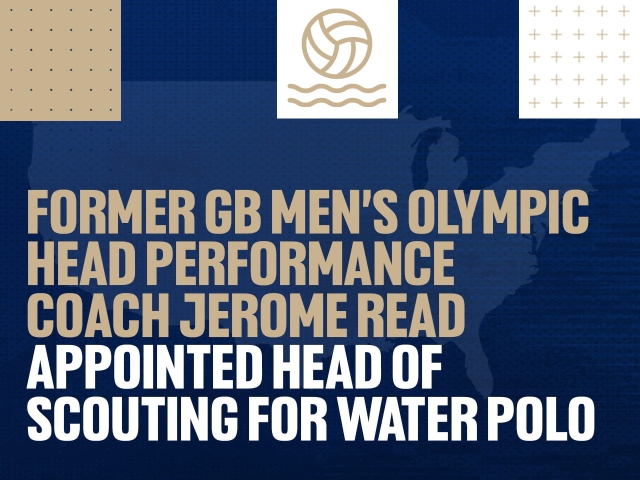Written by Beth James, former Academic Counsellor at the University of Nebraska's Athletic Department and now Head of Recruitment at FirstPoint USA.
So, you're a talented young female golfer, soccer player or athlete with dreams of competing at the college level in the United States? That's fantastic! As you venture into the exciting world of recruitment and scholarships, there's a crucial piece of legislation you need to know about: Title IX. This landmark law has profoundly shaped the landscape of college sports and education, particularly for female athletes, and understanding it can significantly impact your opportunities.
What is Title IX?
In simple terms, Title IX of the Education Amendments of 1972 is a federal law, signed off by President Nixon, that prohibits sex-based discrimination in any education program or activity receiving federal financial assistance. This isn't just about sports; it covers all aspects of US education, from admissions to academic programs. However, its impact on athletics has been transformative since its passing more than 50 years ago.
Title IX and Athletic Scholarships: Creating Opportunities
Before Title IX, opportunities for women in college sports were severely limited. Athletic scholarships were overwhelmingly directed towards male athletes, primarily in sports like football and basketball. Title IX changed this by requiring institutions to provide equitable opportunities for both male and female athletes, essentially meaning that for every dollar invested in men’s teams, the equivalent had to be spent on female athletes. And with a significant portion of college athletic budget often ring-fenced for the football program – which isn’t a female sport – there is more money to spread around the other women’s programs.
The legislation focuses on three key areas, often referred to as the "three-part test," to assess compliance:
- Proportionality: The number of female athletes should be substantially proportionate to the number of female undergraduates enrolled at the institution. If a university's undergraduate population is 60% female, ideally, around 60% of its athletes should also be female.
- History and Continuing Practice: The institution has a demonstrated history and continuing practice of expanding athletic opportunities for the underrepresented sex (typically women). This acknowledges that achieving proportionality might take time and focuses on a clear commitment to progress.
- Effectively Accommodating Interests and Abilities: The institution is fully and effectively accommodating the interests and abilities of its female students in the selection of sports offered. This means if there's sufficient interest and ability among female students for a particular sport, the university should consider adding it.
How Title IX Benefits Female Athletes:
Title IX has directly led to a significant increase in the number of women's sports programs and the availability of athletic scholarships for female athletes. Here are some examples of how this plays out:
- Increased Scholarship Funding: Sports that historically received little to no scholarship funding for women now have dedicated financial aid available. This allows talented female athletes to pursue their athletic dreams while also obtaining a college education without the full financial burden.
- Growth of Women's Teams: Title IX has spurred the creation and expansion of women's sports teams across various disciplines. Universities are now more likely to invest in facilities, coaching staff, and resources for women's programs to meet the proportionality requirement and cater to student interest.
- Greater Opportunities in Diverse Sports: While sports like basketball, soccer, and volleyball have seen significant growth in female participation and scholarship opportunities due to Title IX, other sports have also benefited immensely. For example, sports like soccer, golf, rowing, and track and field have witnessed a surge in female athletes receiving scholarships and competing at a high level. Even fast-growing sports in the US, such women’s rugby, are gaining traction and increased recognition, partly due to the emphasis on gender equity in athletics.
Female Athletes Thriving on the Field and in the Boardroom Under Title IX
The impact of Title IX is undeniable. We've seen a generation of incredibly talented female athletes achieve remarkable success at the collegiate and national level, and onto the global stage. From the remarkable rise of the US women’s national soccer team and now sell-out stadiums in the Women’s Champions League, to the growth of the WBNA and multi-million-dollar prize funds on the LPGA Tour, Title IX has provided the platform and resources for these dreams to become a reality. Countless young women have benefited from college scholarships and the chance to compete at an elite level.
A significant ripple effect of Title IX increasing access to sports participation for women and ending admission quotas in education was that it also opened doors beyond the locker room. A 2018 study by Ernst & Young found 94% of women who held C suite (high-ranking) positions were former athletes. Fifty-two percent played sports at the college level, compared to 39% of women at other managerial levels. No longer excluded from the old boys’ network male athletes had built and later used to advance professionally, women have developed their own networks and earned empowerment they previously had been denied.
“It’s not about being No. 1 or anything like that. It’s about learning the culture that the men have created through business and sports, and it does help in a tremendous way for women,” said 12-time Grand Slam tennis champion and Cal State University alum Billie Jean King, a lifelong campaigner for gender equality in sport. “Athletics and sports teach you to be resilient, they teach you to finish a project, they teach you how to lead, they teach you how to be a team player. You learn that through sports, and that’s what men have always had.”
And while full parity is yet to be achieved on many levels, the commercial success of women’s teams and female athletes served to highlight the continued impact of Title IX. Women’s college basketball now ranks second in NIL deals behind football, with Flau'Jae Johnson of LSU earning $1.5 million and Iowa alum Caitlin Clark paving the way for others to maximise their earnings through endorsements, signing a recent deal with Nike worth more than $11 million.
Maintaining Equity: Legislation and Ongoing Efforts
To ensure Title IX remains effective, several mechanisms are in place:
- Office for Civil Rights (OCR): The OCR within the U.S. Department of Education is responsible for enforcing Title IX. They investigate complaints of sex-based discrimination in educational institutions.
- Legal Precedents: Numerous court cases have further clarified and strengthened the interpretation and application of Title IX in athletics.
- Advocacy Groups: Organizations dedicated to promoting gender equity in sports continue to advocate for full compliance and raise awareness about Title IX's importance.
A Global Invitation: Consider Becoming a Student-Athlete in the USA!
For talented young international athletes, the landscape of US college sports, shaped significantly by Title IX, presents incredible opportunities. Universities across the country are actively seeking skilled athletes from around the world to enhance their programs.
Regardless of your sport – whether it's a well-established women's soccer program or a rapidly growing one like women's rugby – the commitment to providing equitable opportunities means there could be a place for you. The chance to combine high-level athletic competition with a quality education in the United States is a unique and enriching experience.
The Enduring Legacy
As legendary tennis champion Billie Jean King famously said, "Title IX is 37 words that changed everything for women in sports." Her words powerfully capture the transformative impact of this legislation. It has not only opened doors for countless female athletes to pursue their passions and earn scholarships but has also enriched the entire landscape of college sports.
If you're a young woman with athletic talent and academic aspirations, understanding Title IX is your first step towards potentially unlocking incredible opportunities in US college sports. Keep working hard, stay focused on your goals, and know that Title IX is there to help level the playing field and ensure your talent is recognized and rewarded.
Register today with FirstPoint USA to kick off your US sports scholarship journey.




